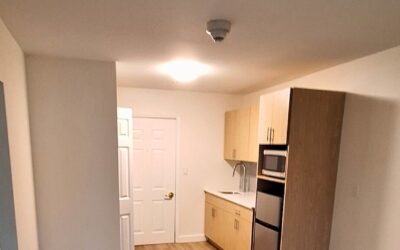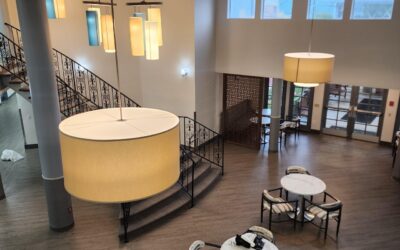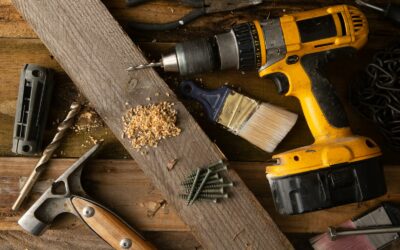For business owners, investing in commercial property signifies a substantial financial commitment; therefore, safeguarding this investment by regularly conducting comprehensive commercial inspections is pivotal. These inspections are essential for verifying the safety, functionality, and regulatory compliance of your property. The inspection industry encompasses various specialized roles, each contributing to the meticulous evaluation that helps preserve the structural integrity and ensure the safety of all occupants.
In this blog post, we’ll highlight the key commercial inspections that every conscientious business owner should prioritize.
Commercial Building Inspections
Building inspections are one of the cornerstones of property maintenance. Through the meticulous examination of a commercial property inspector, you can anticipate, identify, and rectify potential hazards before they lead to significant damage or, worse, injury. Areas examined in a standard commercial building inspection often include the structural integrity, foundation, plumbing, electrical systems, as well as the presence of pests or hazardous materials.
A detailed look at the building’s structural components is vital, ensuring it can withstand the wear and tear that comes with time. Overlooking this can result in costly repairs and, in the worst cases, building failures. A building’s systems – from HVAC to elevators and emergency lighting – are tested to guarantee they function as intended. Commercial properties typically have more complex systems than residential buildings, making this step critical for everyday operations. The presence of environmental hazards, such as asbestos or lead, may be flagged during an inspection. Mitigating these risks is not just a legal obligation but a moral one, safeguarding the lives and health of all parties involved.
Plumbing Inspections
Commercial plumbing systems are often more sophisticated and extensive than their residential counterparts. They are designed to meet the higher demand of users expected in a business setting. A thorough plumbing inspection assesses the water supply, drainage, and any specialty systems like sprinklers or water heaters. Leaks can lead to significant water damage, mold growth, and unhygienic conditions; regular inspections can identify and fix these issues timely. Commercial enterprises may require higher pressure and flow rates. Inspecting these ensures smooth operations and compliance with building codes. Specialty systems, such as those used in chemical processing or scientific research, need specialized commercial building inspections to ensure they function safely and are environmentally friendly.
Balcony or Mezzanine Commercial Inspections
Balconies and mezzanines add architectural interest to commercial spaces and can serve various practical uses, from extra storage to additional office space. Regular commercial inspections validate these elevated platforms’ safety features, such as guardrails and support structures. Mezzanines and balconies designed for public or employee use need to be able to support their intended load. Inspectors assess this with checks for excessive deflection or visible damage.
Adequate barriers and railings prevent falls, a leading cause of injury. These are examined for height, gap spacing, and overall integrity during a balcony or mezzanine commercial building inspection. The design and construction of these spaces must fulfill local building codes. Periodic commercial inspections ensure that any changes or wear and tear do not compromise safety or regulatory adherence.
Drywall Inspections
Drywall is a fundamental element in constructing office spaces, dividing walls, and ceilings. Drywall inspections ensure that the installation is done correctly and detects any issues like cracks, holes, or moisture damage that may compromise the structural integrity, acoustic performance, or fire resistance of the material. A commercial building inspector checks that drywall is straight and plumb, critical for a professional finish and the stability of any fixtures attached to it. The appearance of your commercial space speaks volumes about your business. Drywall inspections catch any imperfections that could affect the professional image of your premises. For soundproofing and fire resistance, drywall must meet specific standards. Inspections verify that the correct materials have been used and installed to code.
Electrical Commercial Inspections
Electrical systems are the lifeblood of commercial operations. Electrical inspections are essential to avoid outages, fires, or expensive energy losses from faulty connections or aging equipment. Faulty wiring can lead to power surges, malfunctions, or even fires. These commercial building inspections assess the condition and capacity of your electrical circuits. From lighting to industrial machinery, all electrical equipment should be inspected for signs of wear, tear, or damage that could affect performance. Inefficient electrical systems can lead to unnecessary expenses. An electrical commercial inspector looks for opportunities to upgrade your building with energy-efficient solutions.
Emergency Exit and Egress Pathway Inspection
An efficient emergency exit and egress pathway are not just common-sense safety features; they are legal requirements. These inspections focus on the clarity, dimension, and ease of access to exits in emergency scenarios. Exits should be clearly marked and unobstructed. Inspections verify that signage, lighting, and obstacles are appropriately addressed. The pathway to the exit must allow for the quick and easy departure of occupants. This includes proper door operation and level pathway surfaces. Building codes are continually updated; regular inspections ensure that emergency egress features remain compliant with the latest regulatory standards.
Energy Efficiency Inspections
In a world increasingly conscious of environmental impact, energy efficiency inspections are a smart business move. They can identify areas of excessive energy consumption and recommend sustainable solutions that reduce your carbon footprint and operating costs. The building envelope – the physical barrier between the interior and exterior environment – undergoes examination for air leaks, inadequate insulation, and UV damage. These inspections look at the energy efficiency of your HVAC, lighting, and water heating systems. Updates in these areas could lead to substantial savings and better environmental performance. Evaluating the feasibility of renewable energy sources, such as solar power, can significantly enhance your commercial property’s sustainability.
Environmental Impact Commercial Inspections
Environmental impact inspections are crucial for businesses that must comply with environmental regulations or have a stake in preserving the environment. They assess the impact of commercial activities on the surrounding ecosystem, air and water quality, and waste management. Commercial operations often produce emissions and waste. Inspections ensure that these are within legal and ethical limits, and waste is managed responsibly. Certain businesses may need to employ specific environmental controls. Environmental impact inspections verify that these are in place and functioning as needed. These inspections may be part of a broader compliance report, which documents a business’s adherence to environmental policies and laws.
Facility Inspections
Facility inspections are a comprehensive review of all aspects of your property, encompassing everything from maintenance needs to potential future uses. Conducting routine facility audits can help minimize unforeseen issues and keep maintenance costs manageable. Using the data from facility inspections can support strategic planning for upgrades, expansions, or changes in use that your commercial property may require. Facility inspections ensure that your property meets all safety and compliance standards, safeguarding your business from legal challenges and disruptions to operations.
Fire Protection System Inspections
Fire protection systems are essential features of any commercial property, often including fire alarms, sprinklers, and suppression systems. Regular inspections ensure they remain operational and compliant with local fire codes. Fire protection systems must work flawlessly in an emergency. Inspections cover testing alarms, sprinklers, and system control panels to guarantee prompt response. These inspections confirm that your fire systems are up to date and meet the latest requirements. Inspections serve as an opportunity to review and update your emergency response plans, potentially saving lives and mitigating property damage in the event of a fire.
Foundation Inspections
The foundation inspection is the bedrock of commercial building checks. A stable foundation is essential for the structural integrity of your property. These inspections look for signs of settlement, cracks, or other damage that could jeopardize the superstructure. Cracks in walls, uneven floors, or doors that don’t close properly can all be indicators of foundation problems. Inspectors note and assess these signs to determine their cause. If issues are identified, inspectors may propose remediation strategies, which could include foundation repair or preventative measures to avoid escalation of the problem. Foundations need to support the building throughout its life. Inspections evaluate the foundation’s ability to continue doing so and whether preventative maintenance is necessary.
Framing Inspections
The framing inspection is a critical midpoint evaluation in construction projects. It ensures that the property’s frame is sturdy, accurate in its construction, and complies with structural plans and codes. Framing inspections occur when the frame is complete but before it is concealed by walls or other structures. This timing allows for the most thorough review. Attention to detail in the framing process is essential. Inspectors look for straight and evenly spaced framing members, correctly cut angles, and proper connections. Framing is more than just support; it can impact fire safety, electrical, and plumbing installation. Commercial inspections ensure it all aligns with local codes.
HVAC Commercial Inspections
HVAC systems keep your commercial space comfortable and safe by regulating temperature, ensuring fresh air, and controlling humidity. Periodic inspections prevent unexpected breakdowns and maintain air quality. Efficient HVAC systems can save you money on energy costs. Inspections measure output, identify wear, and check for obstructions in the system. Indoor air quality impacts the health and productivity of your employees and customers. Inspections sample air for contaminants and verify system filters are in good condition. Replacements or major repairs are costly and inconvenient. Early identification of potential issues through a commercial property inspection can extend the life of your HVAC system.
Lowest Elevation Inspections
The lowest elevation inspection concerns buildings close to sea level or flood-prone areas. It ensures that structures are designed to manage water ingress and prevent catastrophic damage in the event of a flood. Flood prevention means a good water management system. Inspections verify that your lowest levels have proper drainage, seals, and barriers in place. If your commercial property includes elevated elements for flood protection, like raised platforms or floodgates, these require their own commercial inspection for proper operation.
Rooftop Inspections
The rooftop inspection is an important safety and maintenance check for all commercial buildings. Inspectors assess the condition of the roof, its materials, drainage, and equipment mounted on it. Roofs can be constructed of various materials, each with its unique life expectancy and durability. Inspection gauges the current condition and estimates the lifespan of the roof. Water is the main enemy of structural integrity; inspectors verify that your roof effectively channels water away from the building and identify any areas prone to ponding. HVAC units, antennas, and other rooftop equipment must be securely mounted and in working order. Inspections prevent equipment failures and subsequent damage.
Under-Floor Inspections
The under-floor inspection examines the underbelly of your property, a space typically unseen and rarely thought of but essential for maintenance and safety. Under-floor spaces can be a haven for pests. Inspections identify and address ingress points, infestations, and other pest-related issues. Under-floor areas are at risk of high moisture levels, leading to rot and mold growth. Inspections ensure proper ventilation and moisture barriers. Under-floor structures, such as supports and piers, are vital to the building’s overall integrity. Inspections confirm these are sound and able to support the weight they were designed for.
Property Condition Assessments
Property Condition Assessments (PCAs) are exhaustive evaluations aimed at providing a complete picture of a property’s current state and forecasting its future maintenance needs. This assessment covers the building’s structure, systems, and components, from the roof down to the foundation, and extends to landscaping and site improvements. PCAs not only help in understanding the physical condition of the property but also in making informed decisions regarding purchases, investments, or long-term planning. Commercial inspectors provide recommendations for repairs, replacements, and enhancements to building systems, giving property owners and investors valuable insights into potential expenditures and interventions needed to maintain or improve the property’s value and functionality.
Construction Progress Assessments
Construction Progress Assessments (CPAs) are critical evaluations performed during various stages of a building project to ensure that construction adheres to the original plans, specifications, and timelines. These assessments offer stakeholders a transparent view of the project’s progress, highlighting any deviations or potential setbacks early in the process. By conducting CPAs, project managers can make informed decisions about resource allocation, identify risks before they become major issues, and maintain alignment with budgetary constraints. Furthermore, these assessments serve as a documented progression of the construction, providing a detailed history of the build that can be valuable for future maintenance, renovations, or expansions.
Recap and Encouragement for Safe Business Practices
Commercial inspections are not just tasks to tick off a list; they’re investments in the longevity and health of your business. By conducting regular checks as delineated in the list above, you reinforce your commitment to safety, compliance, and sustainability. A proactive stance towards commercial inspections protects your people, preserves your property, and promotes a positive business image.
View Our Work
Brandywine Haverford Estates by Monarch
South Coast Improvement Company has completed interior renovations at the senior living community, Brandywine Haverford Estates by Monarch. We were entrusted with enhancing the facilities, and the results speak for themselves. The team brought diligence and...
Nouveau Marc by Barclay House
South Coast Improvement Company proudly partnering with QSL Management delivered a comprehensive renovation at Nouveau Marc by Barclay House, a premier senior living community. This project focused on revitalizing key resident areas with an emphasis on safety,...

























